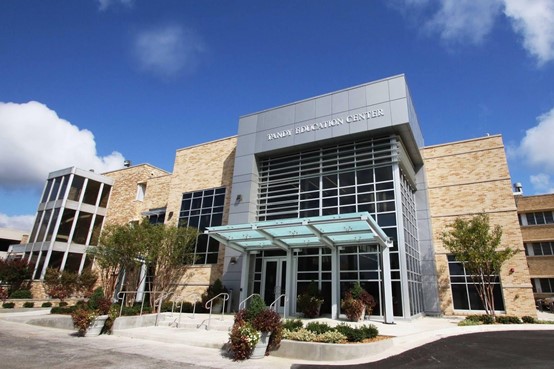
Haruv-USA partners with OU-Tulsa Simulation Center for simulated learning experiences. The OU-Tulsa Simulation Center provides simulated experiences in a safe environment. It provides multiple trainings to community services and professionals in Tulsa, in addition to routine training for students on the OU-Tulsa campus, including medicine, PA, physical therapy, occupational therapy, nursing, social work, and education. Additionally, the Center provides simulation and training services for outside agencies.
The Simulation Center includes 10 outpatient medical rooms, 2 inpatient rooms, 4 therapeutic interview rooms, 1 home environment, 2 debriefing rooms as well as 1 distant learning room set up for cross-campus trainings and meetings.
A link: https://www.ou.edu/tulsa/simulationcenter
In collaboration with Haruv USA training has been provided to many organizations in the field of child welfare in Tulsa.
Below is a list of the different types of simulations that can be accommodated by Haruv and the simulation center.
Multiple scenarios in which learners interact with abused youth and at-risk parents. These simulations take place in a model apartment for in-home care which was designed to simulate the everyday environment of at-risk families, or in therapeutic interview rooms.
Both medical and social simulations:
10 different scenarios that deal with children who are involved with criminal proceedings as the victim.
The attorney learns how to speak with the child and/or family members and how to help them understand the legal process and their role in it.
Youth Trafficking is a growing phenomenon that is raising concerns for professionals in the field of child welfare. There is not enough knowledge provided to the public about the serious problem of youth trafficking in America. Because of this, many professional people do not know how to recognize a youth who has been involved in trafficking. Many trafficking victims are unaware that they are captives of trafficking. This phenomenon has a unique way of keeping its victims in the dark. Our scenarios were written by professionals who are dealing with this problem and offer the opportunity to practice working with these individuals.
How does the world look from another’s perspective – particularly from the view of a woman who is experiencing violence? In Her Shoes allows us to temporarily experience life as a woman experiencing domestic violence. It is an interactive, educational exercise used in a workshop setting to help us connect to the day-to-day reality for women experiencing violence, deepen our empathy and compel us to take action.
Campers and counselors are exposed to experiences outside of their normal routines at home. Being away from home requires campers and counselors to gain a special kind of trust from each other in a matter of days. This trust can lead to difficult conversations, sometimes exposing trauma, past abuse, self-harm and life struggles. Haruv’s camp simulations offer counselors and camp staff members the opportunity to practice speaking with campers who might come forward with past trauma, abuse or self-harm.
Auditorium style simulations can be used as part of conferences or to be used to train workers at different agencies on certain topics. This would mean that one of the trainers does the simulation while the others observe. This allows for all of the staff to watch and learn from the scenario taking place. Following the simulation, a debriefing would take place where the staff could discuss what they learned. Could take place at the agency or at the simulation center.
An international center of excellence and a recognized leader in the field of child maltreatment. Haruv USA at the University of Oklahoma-Tulsa is part of the larger Haruv Institute. The center is a new venture bringing together the best of two worlds – the unique and international leadership of the Haruv Institute paired with the research-based educational knowledge and expertise of OU-Tulsa and the Anne and Henry Zarrow School of Social Work.